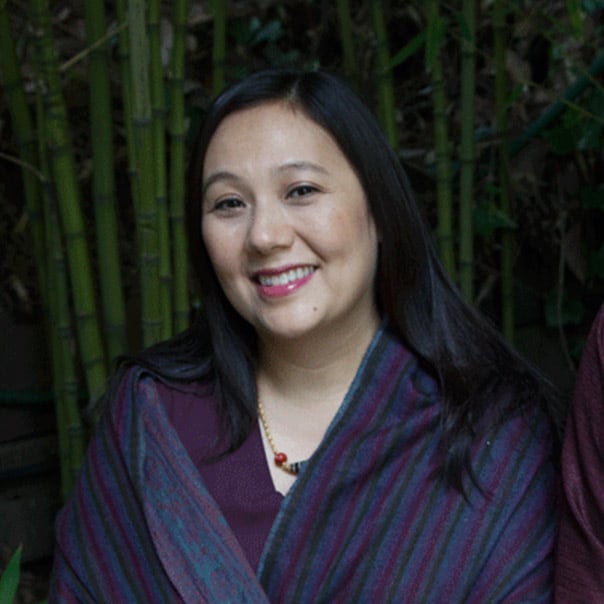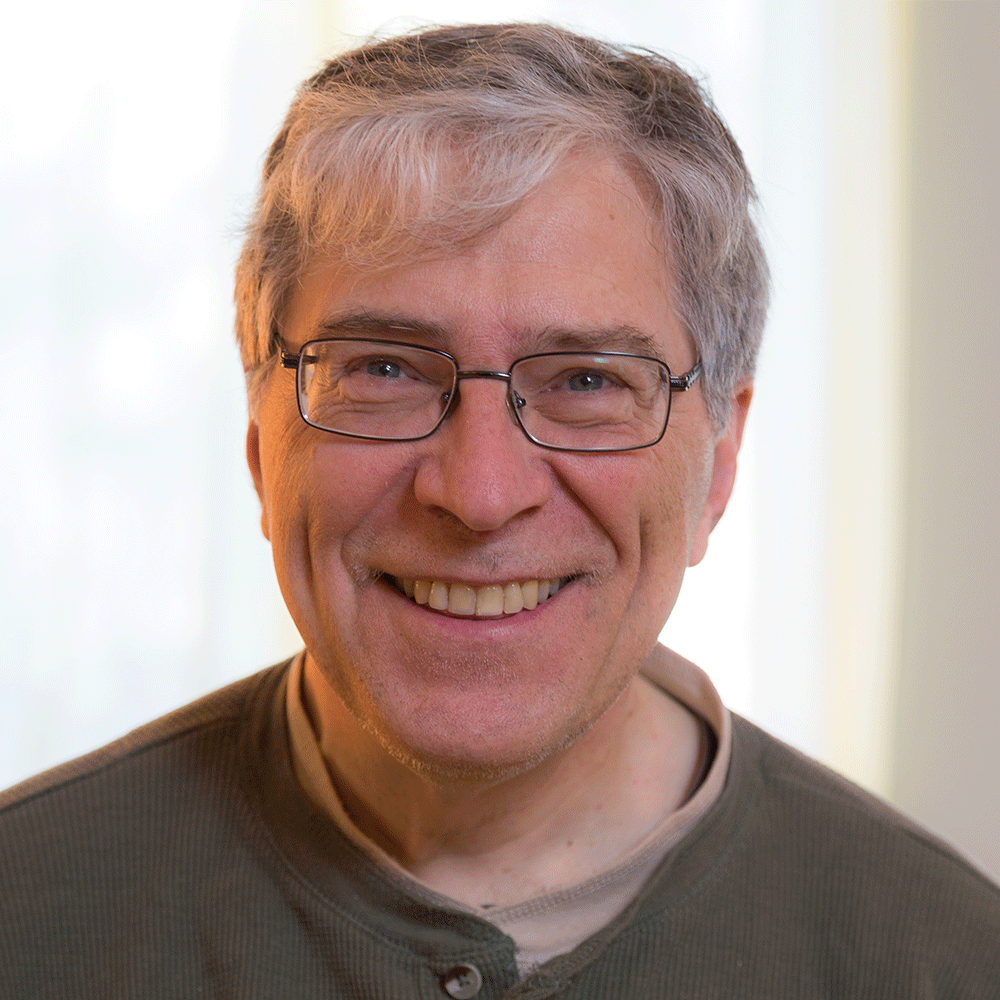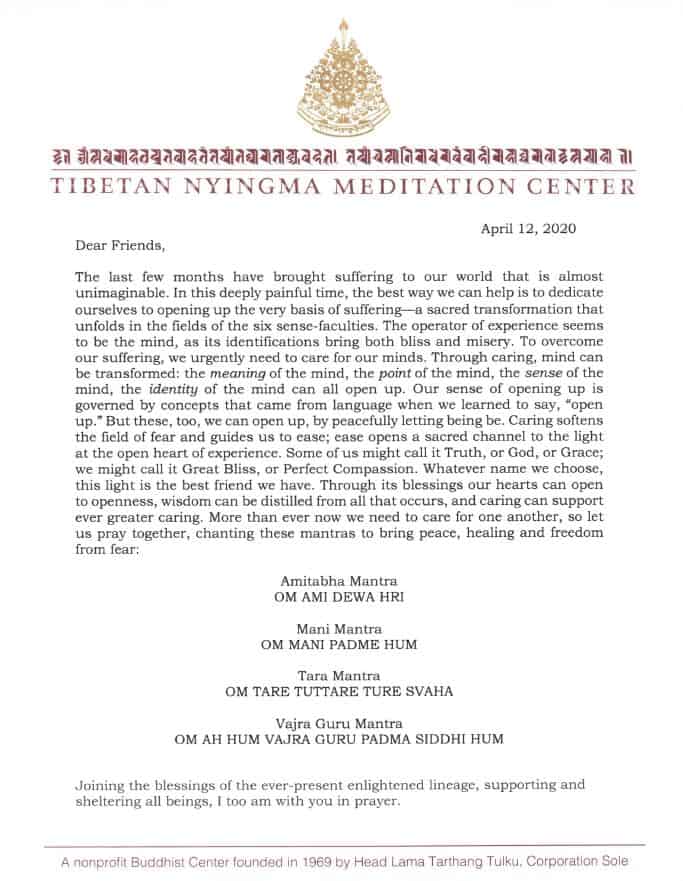Garden of the Sacred: The Padmakara Meditation Garden
By C.M. Kushins — journalist and author
March 1, 2020
“Without any commentary or explanation, we can walk through a garden and feel the fullness of the experience … Sustained, nourished, and supported by beauty, the heart begins to open, like the petals of a flower unfolding. The flower of the heart is the center of the mandala. When the heart opens, we begin to realize the unity of existence and our communion with nature.”
—Rinpoche Tarthang Tulku
Nowhere are the words of Rinpoche Tarthang best echoed than within one of the Nyingma Institute’s most important and ambitious projects, the Padmakara Meditation Garden.
Since 1973, the meditation garden has been a beautiful, intimate place for students, retreatants, and visitors to practice and reflect in a space of tranquility and refuge. Now, almost 45 years later, the garden is in need of renovation in order to continue serving our community, friends, and visitors.
Thanks to the efforts of a world-class landscape designer, the mindful labor of the Nyingma Institute’s dedicated volunteers and staff, and the generosity of our donors, the garden’s progress is now on an incredible track into restoring the beauty and luster it has long represented within Tarthang Rinpoche’s vision for a sacred space for Nyingma residents and visitors alike.
“This is definitely the largest-scale project that I’ve worked on for the Institute,” says Yuji, a volunteer and resident who has been a core crew member of the Nyingma Institute’s many sacred art and sacred space projects. “I’ve worked on maybe a dozen projects here, but this is the biggest in scope and one of the largest for the whole Bay Area community.”
The garden itself has long been considered the crown jewel of the Nyingma Institute, and its initial construction dates to the spiritual facility’s 1973 founding. Envisioned as an intimate place for students—both devout Buddhists and secular alike—retreatants, and visitors alike to practice and reflect in an area of tranquility and refuge, the intricate design of the garden not only contains material embodiments of all eight auspicious symbols of Tibetan Buddhism, but was uniquely framed to exemplify the Tibetan concept of “the value of sacred space.”
Demolition began in the fall of 2018, with the needed machinery and crew line-up ready to begin the true groundbreaking by May of the following year. Working alongside officials from the Bay Area—along with inclement weather and the always-needed fundraising for such spiritual endeavors—all added to the ongoing process to get to the garden’s current progress. Just last month, the concrete was finally poured for what will shape the garden’s gorgeous overall layout, framing the interiors of the intricate design features with a large pond—which, in and of itself—proved mandatory to the beautiful water addition: the reservoir’s concrete also acts as a form of foundation for the garden’s many beautiful elements, including a hillside path for walking meditation, waterfalls, bamboo groves, and a stone courtyard with a lotus medallion design in the center.
“I think that the scale of the project is what drew us in as volunteers,” said Kris, another resident and team member. “We’ve been part of the bigger projects that are part of the community’s mandala, and this seemed like a great crew to work with as one of the largest community efforts in the Institute’s history.” He and Katie have both been involved in numerous large-scale projects at Odiyan Retreat Center, where they gained construction experience and honed their skills.
Of the Padmakara Garden’s successful progress, Katie added, “It’s always funny when you work on an ongoing project like this … There are so many intricate elements that have to go in place, that you don’t always realize how much progress you’re actually making! Since the weather has warmed up over the last few weeks, we’ve made so much headway, the real beauty of the garden is started to take shape.”
All are invited to be part of the creation of Padmakara Garden — a precious jewel of a cultural heritage garden, with Tibetan sacred art and architecture set in a lush Himalayan themed garden, balanced by modern architectural accents. As the final element of the Tibetan sacred symbolism, the completed garden will act as the crown “jewel” of the Institute, serving as a living representation of Tibetan cultural heritage for visitors and residents of the Bay Area to enjoy and find inner peace.
Learn More: nyingmainstitute.com/garden



